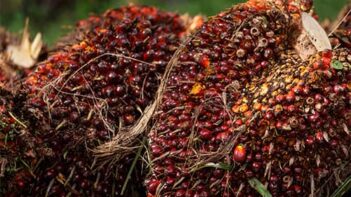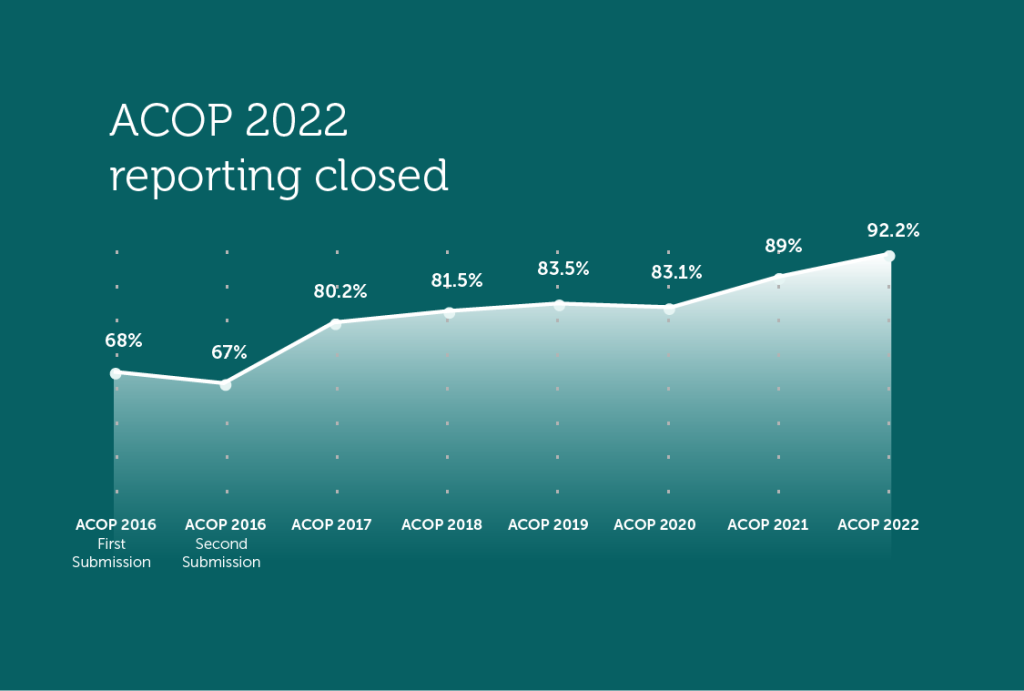
The official submissions for the Annual Communication of Progress (ACOP) 2022 cycle, which ran from 27 March to 19 May, have reached a new all-time high, exceeding 90% for the first time.
The RSPO Secretariat wishes to express gratitude to all RSPO members for reaching this achievement. Through their support and engagement, ACOP submissions have improved significantly in recent years, which enables RSPO to better understand and report on market dynamics, identify issues to assist members, and provide transparency on RSPO’s vision of making sustainable palm oil the norm.
The Annual Communication of Progress (ACOP) report is an annual document submitted by members of the RSPO to gauge a member’s progress towards achieving the production and consumption of RSPO certified sustainable palm oil and palm products.
Reporting is mandatory for all Ordinary and Affiliate members that have completed a full 12 months of RSPO membership at the start of the respective ACOP reporting cycle. Reporting for Associate members or Ordinary/Affiliate members with less than 12 months of RSPO membership is voluntary. ACOP data is used by the RSPO to gauge individual member commitments toward achieving RSPO goals, and on an aggregate basis to report and narrate on the market for certified sustainable palm oil and palm products, and supply/demand trends in the wider industry.
Keep reading
Carry Over Credits for Certified Independent Smallholders Group

From the Amazon to the Aisles: Discovering Sustainable Palm Oil in the Heart of Peru

Global Trends of Sustainable Palm Oil and China's Pathway
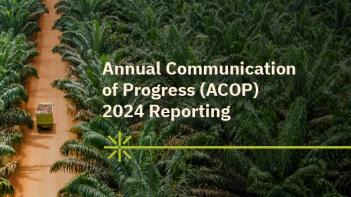
Final list of ACOP 2024 Non Submitters
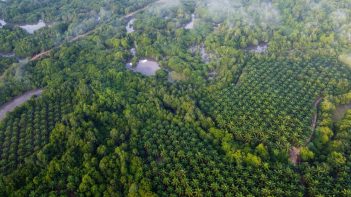
New ISEAL Case Study Identifies Pathways to EUDR Compliance in Palm Oil Sector
Call for Expression of Interest: Nigeria National Interpretation Task Force for 2024 RSPO Principles and Criteria (RSPO P&C) and Independent Smallholder (ISH) Standard
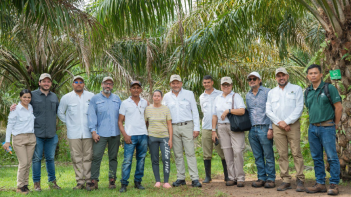
From Cocaine Processing to Cultivating Palm Oil: Resilience takes root in a Colombian community

Social Sustainability in Focus at the Europe Sustainable Palm Oil Dialogue
